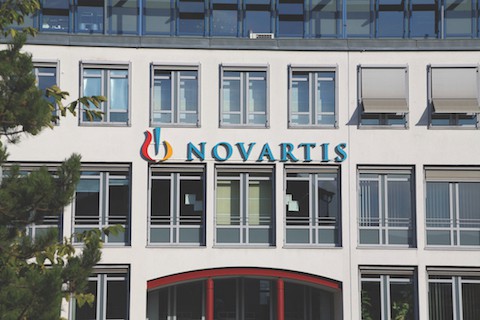
Novartis experimental drug asciminib beat Pfizer’s Bosulif in a phase 3 trial in previously-treated chronic myeloid leukaemia (CML) patients, offering a potential new treatment option for those with recurrent disease.
In the phase 3 ASCEMBL study, asciminib achieved the primary endpoint of statistically significant superiority in major molecular response (MMR) rate at 24 weeks, when compared to Pfizer’s existing med Bosulif (bosutinib).
CML is a type of cancer in which the body produces cancerous white blood cells and almost all CML patients have an abnormality known as the Philadelphia chromosome, which causes malignant white blood cells to proliferate.
The patients involved in the ASCEMBL study had Philadelphia chromosome-positive CML, and also had previously been treated with at least two tyrosine-kinase inhibitors (TKIs), the standard treatment for CML.
Although the treatment of CML was transformed by the arrival of first-line TKIs like Novartis’ own Gilvec (imatinib), there are limited options for patients whose disease has developed resistance to therapy.
This means that a win against Bosulif is particularly important for Novartis, given that Pfizer’s drug is indicated in the chronic, accelerated or blast phases of CML.
Novartis’ drug targets the ABL myristoyl pocket, which is indicated in TKI resistance and intolerance in later treatment lines of CML.
“Our ability to treat patients with TKIs changed CML care forever,” said John Tsai, head of global drug development and chief medical officer at Novartis.
“However, the risk of disease progression is a reality for many patients – especially those who experience resistance to sequential TKI therapy or those who cannot adhere to treatment due to the daily impact of intolerable side effects,” he added.
If asciminib is approved, it will add to Novartis’ existing portfolio of blood cancer meds, which includes Gilvec and Tasigna (nilotinib), which is indicated for the first-line treatment of paediatric patients with newly diagnosed Philadelphia chromosome-positive CML in the chronic phase (Ph+ CML-CP).
According to Novartis, data from the ASCEMBL trial will be submitted for presentation at an upcoming medical meeting and the results will also be shared with regulatory authorities.
The US Food and Drug Administration (FDA) has already granted asciminib a fast track designation in CML.




